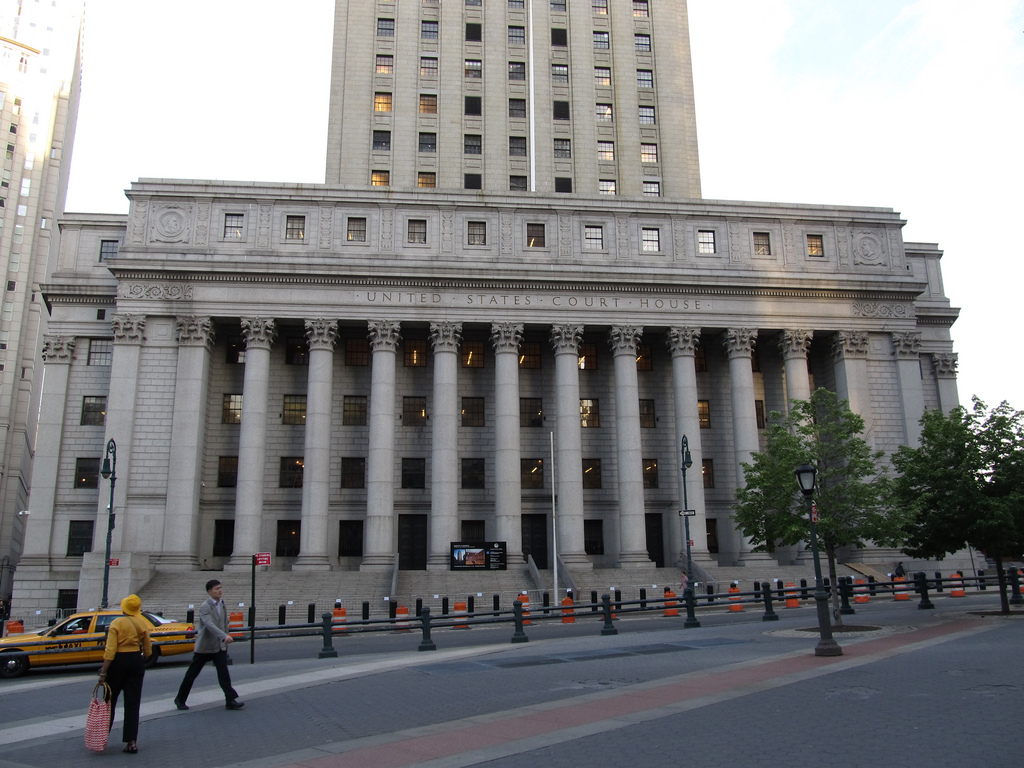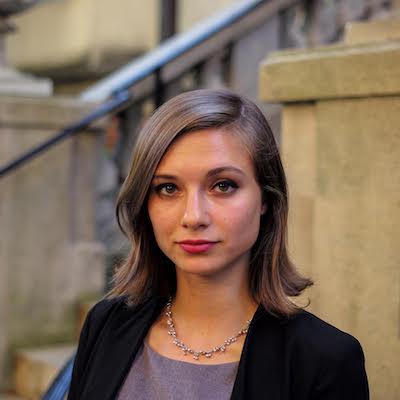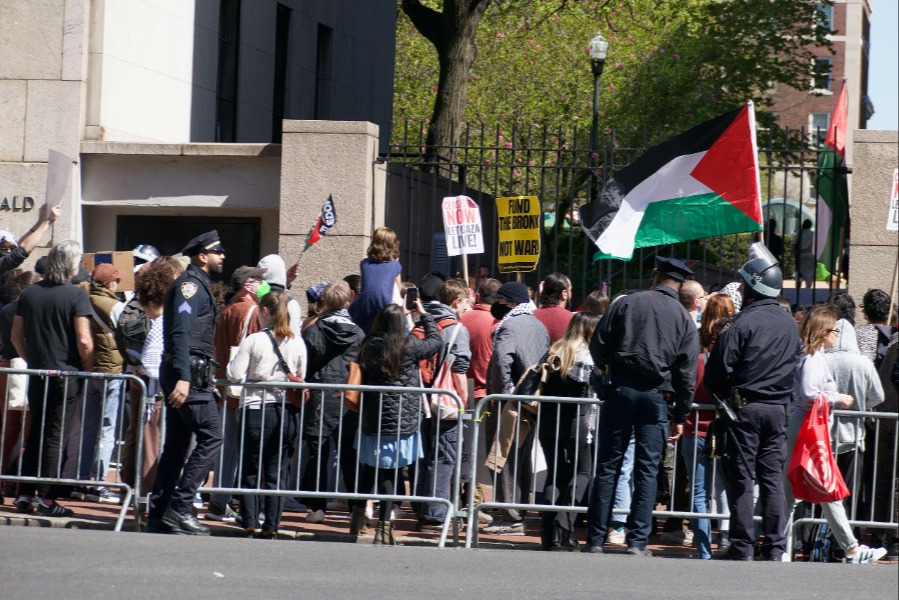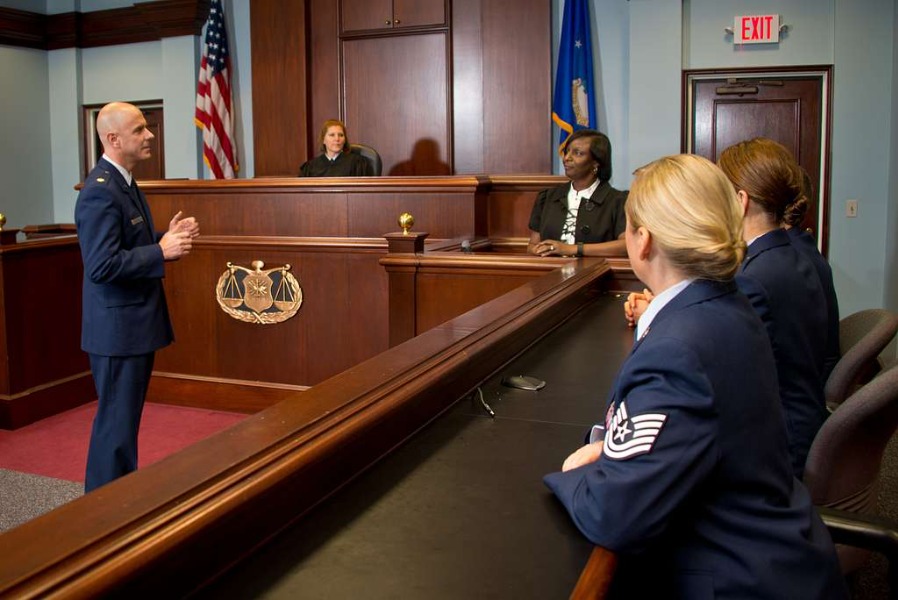The Veselnitskaya Obstruction Indictment: A Collusion Tale
It’s not about L’Affaire Russe, but the indictment of Natalia Veselnitskaya tells a remarkable story about Russian abuse of the U.S. judicial system.

Published by The Lawfare Institute
in Cooperation With

Back in November, one of us spoke at a George Mason University event focused on the Russian government’s abuses of the American legal system, on a panel alongside a woman named Jaimie Nawaday.
Nawaday, a partner at Kelley Drye in New York, had previously worked as an assistant U.S. attorney in the Southern District of New York, where she had helped run a curious civil forfeiture case in which a Russian-owned real estate firm, Prevezon Holdings, allegedly used laundered money to acquire New York real estate. The money was believed to be the product of sham lawsuits in Russia and elsewhere; the scheme was discovered and reported by investor Bill Browder and Russian lawyer Sergei Magnitsky.
At the George Mason conference, Nawaday related an astonishing story about the Prevezon case, one she also discussed in detail this evening on a special edition of the Lawfare Podcast:
As Nawaday recounted, U.S. prosecutors had submitted a request to the Russian government for records pertinent to their money laundering case against Prevezon. The Russian government responded, refusing to provide documents, asserting that there was no connection between the tax fraud scheme and the allegedly fraudulent New York real estate purchases, and suggesting that Browder should be investigated instead. What Nawaday didn’t know during her time at SDNY was that her opposing counsel in the case, a woman named Natalia Veselnitskaya, had an extensive role in preparing Russia’s response to the SDNY’s document request, and that her role was memorialized in a series of emails between Veselnitskaya and Russian officials.
If the name Natalia Veselnitskaya sounds familiar, that’s because she’s the same Russian lawyer who showed up at the infamous Trump Tower meeting, at which she discussed “adoptions” with senior Trump campaign officials, having gotten the meeting by promising dirt on Hillary Clinton as part of the Russian government’s support for Trump. Whether Robert Mueller will show any kind of collusion between the Trump campaign and Russia in its 2016 election interference remains to be seen. What this indictment clearly shows, assuming the government can prove its case, is that Velnitskaya was definitely colluding with Russian government actors in the Prevezon case.
Nawaday said she was first shown the aforementioned emails as part of MSNBC’s reporting for a story in April 2018 by Richard Engel about Velsnitskaya’s connection to the Kremlin. Nawaday told MSNBC she was shocked by the emails, calling them “profoundly troubling and inappropriate.” She noted that the content, if confirmed, raised “serious questions about obstruction of justice.”
Serious indeed.
Today, the federal district court in New York unsealed an obstruction of justice indictment of Veselnitskaya for the precise conduct Nawaday described. The importance to the larger unfolding of L’Affaire Russe of the indictment, remains, at this stage, altogether unclear. The subject of the indictment is not the Trump Tower meeting, after all. The case against Veselnitskaya was also not brought by Mueller, but by prosecutors in Nawaday’s old office—suggesting that the matter may simply involve misconduct unrelated to L’Affaire Russe. Nawaday says she doesn’t know of any connection.
On the other hand, federal charges against Veselnitskaya could be powerful leverage to induce her cooperation, should she be foolish enough to travel overseas and thus end up in U.S. custody. And the story the indictment tells is, on its own terms, an interesting portrait of exactly the subject of that conference at George Mason: Russian government abuse of the U.S. legal system. It is a portrait that ties together the Russian government’s grotesque treatment of Browder, its killing of Magnitsky and its bad-faith dealings with U.S. prosecutors.
Veselnitskaya was hired to help defendants in an asset forfeiture case resulting from what the indictment describes as “an elaborate tax refund fraud scheme in which a criminal organization including corrupt Russian government officials defrauded Russian taxpayers out of … over $200 million.” In the course of her work on the Prevezon case, the indictment alleges, Veselnitskaya criminally obstructed justice by making at least two filings that falsely claimed she was not involved in drafting the Russian prosecutor-general office’s rejection of a mutual legal-assistance request for evidence related to the case.
In fact, the government alleges, Veselnitskaya directly cooperated with a senior Russian prosecutor to draft the document and then coordinated with the chief prosecutor’s office to create a paper trail to cover up her involvement, a paper trail which she submitted in evidence to the U.S. court.
Here’s how, according to the government, it all happened:
On March 21, 2014, the United States requested of the Russian government, pursuant to the U.S.-Russia mutual legal-assistance treaty, records, including Russian bank records, related to the fraud scheme. In August 2014, the U.S. received the Russian government’s response, including a 14-page document from Russia’s chief prosecutor, denying the request. As the basis for that decision, the response cited purported investigative findings that cleared Russian government officials of Browder’s allegations and that pinned the fraud scheme on personnel associated with “Investment Company-1,” including specific allegations against that company’s chief executive officer, identified as “CEO-1” and Russian lawyer Sergei Magnitsky. (Public reporting identifies the CEO as Browder, and the company as Hermitage Capital Management, his investment firm. Russian authorities arrested Magnitsky, his company’s lawyer, and murdered him in custody in 2009.) The response claimed, according to the indictment, to be “the results of the investigation carried out in its territory” and did not reference that any non-government official was involved in its drafting. The U.S. government provided a copy of the response to the defendants and their counsel in June 2015, the indictment states, after denying several previous requests from the defendants for access to the response before formal discovery productions.
On Nov. 3, 2015, the Justice Department moved for partial summary judgment in the asset forfeiture action, seeking a judgment that there was no contest of the fact that the fraud scheme had occurred. Between Nov. 17 and Nov. 18, the defendants filed an opposition brief citing a declaration by Veselnitskaya as evidence the Russian MLAT response, which supposedly exculpated the defendants and concluded that the fraud was, in fact, committed by Browder, Magnitsky and Hermitage Capital. According to the indictment, the Veselnitskaya declaration asserted that she had tried to obtain a copy of the response through the Russian legal system after being rebuffed by the chief prosecutor’s office and that the substance of the response “was a persuasive reason” to find the asset forfeiture action meritless.
The declaration did not, the indictment alleges, disclose the three important facts. First, it failed to disclose that a representative of the chief prosecutor’s office provided Veselnitskaya with drafts of the response. Second, it did not disclose that Veselnitskaya had helped draft and edit the response. And third, it contained no disclosure that the chief prosecutor’s office had assisted Veselnitskaya in filing her complaint against that office in order to obtain a copy of the response, creating the appearance that Veselnitskaya “had been required to go through formal Russian channels to have any access to the Russian MLAT Response.” The court denied the government’s motion on Nov. 30, 2015.
But according to the indictment, Veselnitskaya’s omissions misled the court. On July 31 and Aug. 1, 2014, the indictment alleges, Veselnitskaya had emailed the personal account of a supervisory prosecutor in the chief prosecutor's office; one of the emails she allegedly sent was copied to the father of the owner of one of the defendant firms. Public reporting indicates that the owner of the firm in question, identified as Prevezon, is Denis Katsyv, and his father is Pyotr D. Katsyv, a vice president of the state-owned Russian Railways company and former transportation minister for the Moscow region. According to the New York Times, Velselnitskaya has served has the Katsyv family’s lawyer for some time. Attached to the emails Veselnitskaya sent were drafts of that office’s response with tracked changes and comments, including 29 paragraphs detailing the purported actions by Browder, Magnitsky, and others at Hermitage, the government alleges. The changes also included two paragraphs describing the flow of money to Prevezon through the shell companies that the Justice Department alleged were involved in the fraud. The prosecutor responded on Aug. 1 with a revised draft, as the indictment puts it, “that included, after its draft conclusion, a number of informal notes about additional insertions to make.” The final response received by the U.S. government shows, according to the charging document, that many of Veselnitskaya’s suggestions were either adopted “essentially verbatim, in rephrased form, or with light edits.”
In addition, on June 2, 2015, the same Russian prosecutor sent Veselnitskaya, from a personal email account, a Word document containing a draft legal filing written in Veselnitskaya’s name and addressed to the chief prosecutor’s office. It stated that Veselnitskaya had been denied access to the MLAT request and the response by the chief prosecutor’s office, and it asked the office to reconsider its decision, the government alleges.
But the Veselnitskaya declaration did not merely omit material facts, according to the indictment, but also made two affirmatively misleading statements. First, she said she was forced to seek a Russian court order to gain access to the MLAT response, when in fact she had helped draft the response. And second, she allegedly described to the court the Russian MLAT request as exculpatory evidence found by the state prosecutor with respect to her clients, when in fact she had participated in writing it.
The defendants in the Prevezon action also referenced the MLAT response that Veselnitskaya helped author in subsequent court filings, according to the indictment. The charging document describes one such reference, in a March 23, 2017 motion in limine seeking to bar the Justice Department from introducing evidence it received by means of MLAT requests to other countries, citing the Russian response as exculpatory and complaining that the U.S. did not provide it to the defendants sooner. The Justice Department responded by telling the court that it possessed “circumstantial evidence” suggesting that the defendants in the action “had advance notice of the timing of the Russian MLAT Response’s transmission” to the U.S. government. The defendants denied the allegation, citing information that Veselnitskaya had provided, in a reply memo filed April 21, 2017. It stated that “[t]he only information the Russian Federation had provided to Defendants was that an MLAT request had been made.” The indictment alleges that in the period immediately before the filing of that memo, an email account that Veselnitskaya used exchanged multiple emails with the Prevezon defendants’ U.S. lawyers, who filed the brief. And having received multiple drafts of the Russian response in 2014, Veselnitskaya allegedly knew that the Russian government had provided defendants more information than the mere fact that an MLAT request had been made.
The government thus alleges that the submission of the Veselnitskaya declaration “did corruptly influence, obstruct and impede and endeavor to influence, obstruct and impede the due administration of justice” in violation of 18 U.S.C. §1503(c) and 18 U.S.C. § 2.
Reached for comment by the Wall Street Journal after the indictment was unsealed, Veselnitskaya “said she was on vacation and hadn’t yet read the indictment.” But Veselnitskaya has addressed the matter in the past.
The emails at issue were shown to Velselnitskaya herself in the midst of a contentious interview with Engel when MSNBC ran the original story. She said she couldn’t confirm the information in any of the documents purporting to be her correspondence with Russian officials. When pressed about her contacts with Russian officials, she became defensive: “For some reason your American PR machine has been accusing my country that we are expert hackers [sic]. Maybe you hacked everything yourselves?” In the same interview, while insisting that she was not a government attorney, she also described herself as an “informant” for the Russian government. Later in the interview, she said that her account may have been hacked, that she recognized some of the details included in the emails, and said that “of course” she had cooperated with the Russian government prosecutor’s office.
For the segment, Engel also spoke with the man who provided MSNBC with the emails: Mikhail Khodorkovsky. Khodorkovsky was once one of the richest men in Russia, before he ran afoul of Vladimir Putin, spent years in a Siberian prison and left the country. He now runs, among other projects, the Dossier Center, which, according to Khodorkovsky's website, “tracks the criminal activity of various people associated with the Kremlin.” This tracking includes selective releases of leaked information. Khodorkovsky told Engel that the emails in question were sent to him anonymously, but that he believed they came from Velselnitskaya’s account. “American prosecutors should know when they talk to Mrs. Velselnitskaya, they’re talking to someone backed by influential people,” Khodorkovsky added ominously.
In the podcast this evening, Nawaday declines to say how the correspondence between Veselnitskaya and the Russian government ended up in the hands of SDNY prosecutors, but few prosecutors would watch a story like the one MSNBC aired about Veselnitskaya’s conduct toward their office and sit quietly.
The Prevezon case itself was settled in May 2017. The then-acting U.S. attorney for the Southern District of New York, facing criticism for the settlement, said that it was “no slam dunk.” There were problems well beyond the inability to acquire documents from the Russian government, which Nawaday says the SDNY found a way to work around; for example, witness intimidations included the prominent case of Nikolai Gorokhov, who worked to provide documents to U.S. prosecutors and inexplicably fell from his fourth floor apartment. (Gorokhov survived, sustaining a skull fracture, but is unable to recall events leading up to his fall.)
NBC could not confirm the authenticity of the emails. It looks like the Justice Department has managed to do so.







